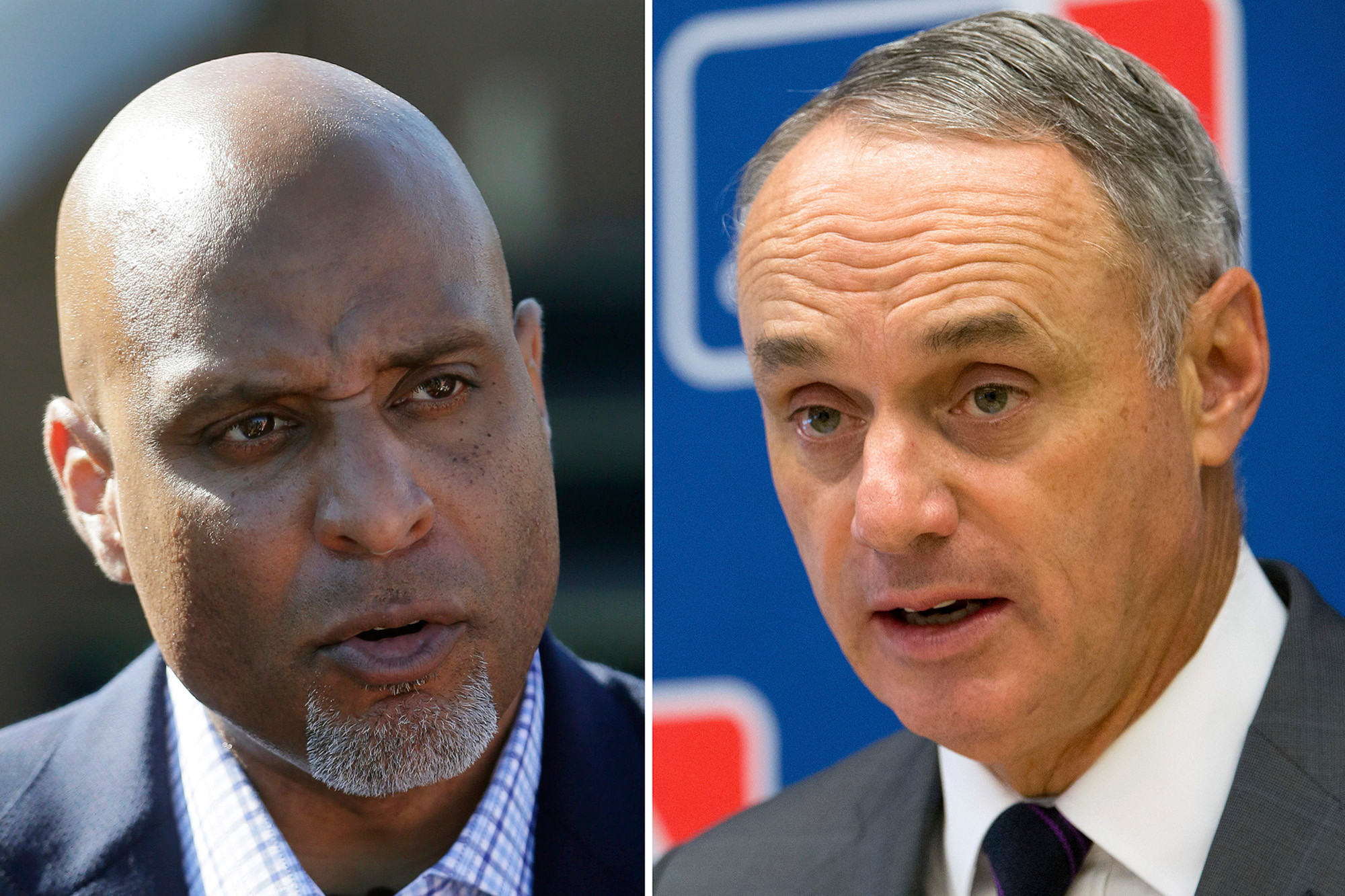More On: exclusive
Randall Emmett and Lala Kent Struggling to Finalize Coparenting Plan
Inside Ginny & Georgia's Brianne Howey's Aruba Honeymoon With Matt Ziering
Kendra Wilkinson Teases ‘New Journey’ in Real Estate, Dating on New Series
Matt James' New Book Details What Didn't Make the Cut on 'The Bachelor'
Jana Kramer Weighs In on 'Funny' Rumors She's Dating OTH's Austin Nichols
MLB and the players association have now swapped financial proposals with each expressing distaste for the opposing plan. And while that keeps the sides far away from an agreement to restart the game, they do continue to heighten a war of words. The players association, represented by executive director Tony Clark and lead negotiator Bruce …
MLB and the players association have now swapped financial proposals with each expressing distaste for the opposing plan. And while that keeps the sides far away from an agreement to restart the game, they do continue to heighten a war of words.
The players association, represented by executive director Tony Clark and lead negotiator Bruce Meyer, delivered its proposal Sunday in a teleconference with commissioner Rob Manfred and his top aide, Dan Halem. The plan called for 114 games (MLB proposed 82) and that the players receive their prorated salaries for games played (MLB proposed a sliding scale in which the richest players would take the biggest hit and reduce salaries for everyone).
The sides remain far apart with the best outcome being an agreement early next week at the latest that could restart the regular season on Independence Day weekend. But there are no signs of real traction. Quite the opposite.
MLB has been concerned that the players association has misrepresented the March 26 agreement to the players by dismissing language that called for new conversations about economic feasibility if games return without paying spectators and stating that the issue was settled with a management promise of prorated salary in the same document.

To that end, Halem told The Post in a text, “The one piece of good news out of [Sunday’s] meeting is that Tony Clark acknowledged that the March Agreement contemplated another negotiation over player salaries if the 2020 season could not be played in front of fans. We were concerned based on media reports if players knew that. Tony told us the players were aware that the March Agreement did not resolve the issue of player salaries in a season without fans. And he said the players‘ decision to accept nothing less than 100 percent of their prorated salaries was due to the risks of playing the season, not because they were promised it in the March 26 agreement.”
When Clark was provided that quote, he responded in an email:
“Dan’s quote about Sunday’s meeting is purposefully misleading and inaccurate. We have an agreement on compensation that says clearly how players get paid in the event games are played — pro rata. In fact, the league recently confirmed in writing that, ‘We agree with the Association that, under the Agreement, players are not required to accept less than their full prorated salary.’
“We have never denied that MLB has the ability to come back and try to persuade us to change that agreement based on their economic concerns. They’ve tried unsuccessfully. In fact, Rob confirmed [Sunday] that, ‘We can pay you 100 percent of salary right now.’ This is all part of the league’s attempts to negotiate through the media instead of focusing on how to bring baseball back to its fans.”
Where does this leave the sides? Not in a great place. As part of the Sunday meeting, MLB floated a concept that it could pay players their prorated salaries, but do so for just 40-60 games. MLB believes that the March 26 agreement empowers Manfred to do that as long as certain economic and health items are covered. The union would counter that the agreement calls for the sides in good faith to try to play as many games as possible and that a reduction from MLB’s initial 82-game proposal is not good faith.
There is no true deadline yet for restarting the season. The players’ plan calls for playing regular-season games through October, which MLB thinks is not smart because of fear the coronavirus will resurge in the cooler fall weather. MLB’s floated concept is to shorten the regular season, which the players see as another artificial pose to lower salaries. Both ideas would allow the sides to keep negotiating beyond next week.
For now, the negotiations are not bringing the sides closer to an agreement. Their historic mistrust and hostilities — not solutions — are currently dominating the relationship.






















